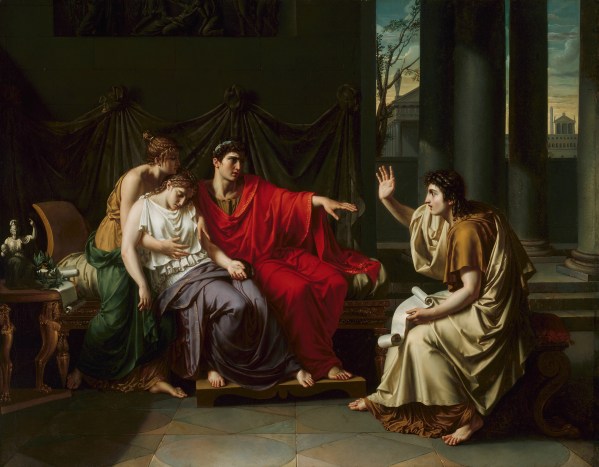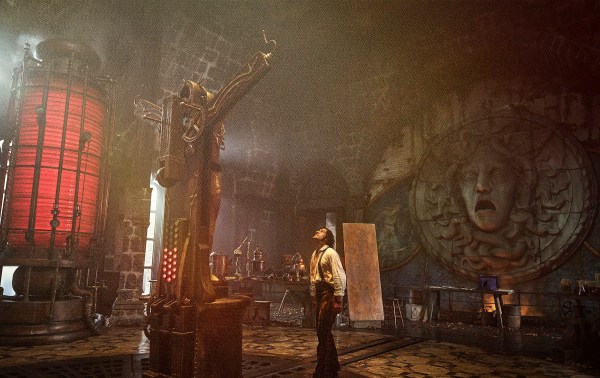Turn any article into a podcast. Upgrade now to start listening.
Premium Members can share articles with friends & family to bypass the paywall.
A notable perk of not hating J.K. Rowling is that it leaves one free to devour (or savor, whichever you prefer), without compunction, the Cormoran Strike detective novels. Rowling writes the series under the pseudonym Robert Galbraith, reportedly to garner authentic response rather than rest on laurels won from the massive success of Harry Potter. Following a two-year wait after the publication of the highly praised seventh installment of the series, the eighth Strike novel, The Hallmarked Man, came out this month.
I, like thousands of fellow millennials, credit the Harry Potter series and its author with inspiring in me an early and irreversible love of reading. But until recently, no contemporary series stirred anything like the anticipation and relish with which I awaited new installments of Harry Potter as a child.
That is, until the Strike novels. Never having been much of a mystery reader, I was persuaded to give Strike a chance only last year, after the first seven books had already been published. The series follows the ex-military, amputee detective Cormoran Strike and his partner, Robin Ellacott, as their London private investigation agency tackles cases dealing with everything from marital infidelity to serial murder.
To write two series, in two very different genres, that are so independently outstanding in one lifetime seems highly unlikely. And indeed, much about Rowling’s life seems unlikely—the origin and evolution of her celebrity, and her ability to remain a fixed moral point in spite of that prominence, for example. Rowling writes much in the Harry Potter books on the subject of remaining right-minded when all—corrupt media, political opportunists, authoritarian administrators, well-meaning but misguided friends, malignant terrorists, the fear of death itself—would have you do the opposite. This theme proves equally fascinating to children and adults because it sharpens us, bringing us closer to being the people we somehow know we should be.
Unsurprisingly, Rowling tests her Strike characters in the same way she tests those in the Potter series—ethical trials of a professional and personal nature elevate this series from a merely engaging whodunit to something more timeless. The complex plotting and lovable protagonists won me over quickly, and I plowed through the novels with abandon. As I neared the end of The Running Grave last fall, I felt a familiar sense of loss. Rowling achieved something extraordinary in the seventh book—I would miss the psychological exploration of groupthink, repression, and cruelty that characterizes that novel. But mostly, I realized, I would miss Strike and Ellacott themselves, just as I missed Harry, Ron, and Hermione at the close of each Potter book.
So, it was with some nostalgia for the fandom culture of my early adolescence that I, along with other devoted readers of Galbraith, eagerly awaited The Hallmarked Man. A week and a half after receiving my preordered digital download (a far cry from the midnight bookstore extravaganzas that took place for the release of Potter books, but exciting nonetheless), I finished the 900-page novel.
If Facebook fan groups are a good indication of general reception, it seems the reviews are highly mixed. Some loved the new novel and ranked it as their favorite of the eight. Many found the plot difficult to follow and tedious at times, though I noticed that most who indicated thus vowed to reread and sounded glad at the prospect. Most commonly, readers vented frustration with the portrayal of the evolving relationship between Strike and Ellacott: Fans have long rooted for the romantic tension that undulates between the detective partners to blossom and take hold.
The Hallmarked Man delivered more in the way of romantic bumbling than blossoming, and I too found myself irritated with and at times bored by the will-they-or-won’t-they tumult. How realistic is it, after all, that two brilliant detectives continue to misread one another so spectacularly? But in response to my own question, my mind’s eye conjured the faces of half a dozen people I’ve known personally who, in spite of brilliance, suffer significant relational blind spots. Ellacott, in particular, nettled in this book, avoidance and emotional dishonesty driving much of her inner monologues. And yet, I found myself typing out defenses of her character for total strangers on Facebook: “She wasn’t always fun to read in THM, but to me, her thoughts and character rang true …”
What compelled me to defend the fictional psychology of Robin Ellacott? Well, unlike an unfortunate majority of fictional characters, I really like her. And even as she and other characters behaved disappointingly, I found myself wanting to read more rather than turn away, trusting that their better natures would eventually triumph.
How is it that Rowling writes characters who are so immensely real and likable? Cormoran Strike, for example, is often surly, stubborn, or emotionally clueless. Yet, like his literary sibling Harry, Strike is interesting without much neuroticism, intelligent but not pedantic, kindhearted yet never mawkish, bold without undue arrogance, altruistic but not martyrish. In short, he’s decent. As playwright David Mamet wrote to the aspiring actor, “If you have character, your work will have character. It will have your character.” The same can likely be said of authors—and so, to understand the decency of Strike and Harry, look to the person of Joanne Rowling.
Of course, Rowling’s character has been the subject of much controversy in recent years. Her ingress into the arena of the gender ideology wars has earned her scorn, derision, and, naturally, death threats aplenty from many who were formerly of her Potter fanbase. She expresses her views publicly in both affirmative and rebuttal, often referencing research, headlines, and personal experience. In addition to these highly civil tactics, she also hits back at her ruder critics every now and then, much to the ire of those who believe she should recuse herself from the conversation.
To those who accuse Rowling of wielding her power to target a vulnerable minority or of “punching down” in online discourse, what conclusion are we meant to draw from the implication that she should neither share her deeply held convictions nor respond to those who assail her character?
One logical conclusion, of course, is that her words and ideas are worth more than theirs, that her voice is weightier, more important, simply because she is more powerful—and that she shouldn’t use her power to step on those with less. But if you’ve read any book she’s ever written, you should understand that Rowling fervently rejects the conflation of righteousness or import with power. Her engagement with those who wish to discredit her (or worse) is an acknowledgement that power or lack thereof does not determine a person’s right to speak.
Indeed, now that she’s made herself rich and powerful, is she no longer entitled to the gumption, irreverence, and fundamental honesty that led to her success? On the contrary, Rowling’s frankness seems inextricable from her character, and I suspect it’s what keeps her writing novels that move people. Like her most robustly rendered fictional characters, Rowling is an imperfect person achieving outsize impact in the world primarily because she is unafraid to seek and tell the truth, and because she understands implicitly that, in its deepest form, truth and goodness are more than just related: They are one.
A personal favorite bit of The Hallmarked Man comes when Strike, reflecting on the uncle who raised him, describes what makes a “proper man.” I like to imagine that Rowling is intentionally heart-on-sleeve here, letting readers in on her own idea of what is good and decent: “To be a proper man meant to be a strong man, an outdoors man, but also a man of principle. It meant lack of bombast, a repudiation of shallowness and a core of quiet self-belief. It meant being slow to anger, but firm in conviction.”
When I read this, I immediately thought of my grandfather. Others will bring to mind fathers, husbands, brothers, mentors. I pray every reader has had the blessing of knowing such a man, or better, of being shaped by the love of such a man. Passages such as these are why, more than 20 years after I first read Harry Potter and the Sorcerer's Stone, I’m gladder than ever to live in a world where J.K. Rowling is writing. Readers of the Strike novels will confirm that she sees evil in the world with clear eyes. The darkness in these books weighs heavy, just as in the Harry Potter series. And yet, with humor, compassion, and unshakeable integrity, she leads her reader to the light.






Please note that we at The Dispatch hold ourselves, our work, and our commenters to a higher standard than other places on the internet. We welcome comments that foster genuine debate or discussion—including comments critical of us or our work—but responses that include ad hominem attacks on fellow Dispatch members or are intended to stoke fear and anger may be moderated.
With your membership, you only have the ability to comment on The Morning Dispatch articles. Consider upgrading to join the conversation everywhere.